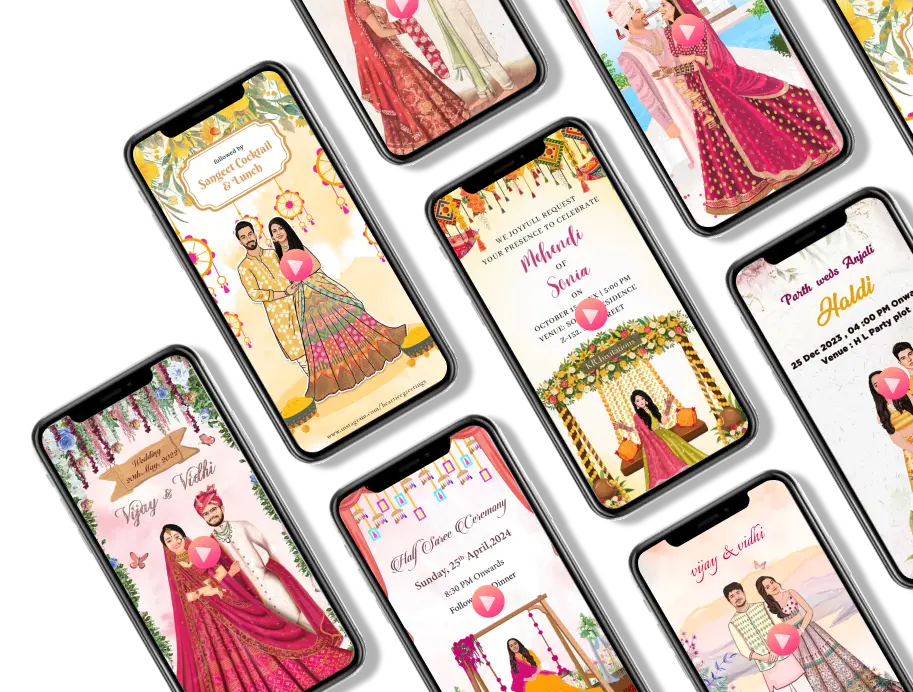A Sikh wedding is much more than just a union of two people; it is a spiritual and cultural experience that celebrates love, commitment, and the values of Sikhism. Sikh weddings follow the sacred Anand Karaj ceremony, which is deeply rooted in the teachings of Guru Nanak and the other Sikh Gurus. This ceremony, which is rich in prayers, hymns, and rituals, serves as a way for the couple to establish a life of togetherness, equality, and spirituality. If you are looking to understand the essence of a Sikh wedding, you have come to the right place.
Historical Background of Sikh Weddings
The concept of marriage in Sikhism is based on the idea of equality, respect, and devotion. According to Sikh teachings, marriage is a spiritual journey, a bond that unites two souls in the presence of God. Unlike some other cultures, Sikh weddings do not involve the elaborate exchange of dowries, as the Sikh faith encourages equality between men and women. The rituals emphasize a commitment to living a life of honesty, love, and service to humanity.
Sikh marriage is centered around the Gurbani, the divine hymns and prayers from the Guru Granth Sahib, which guide the couple's spiritual journey. The first Sikh wedding ceremony, known as the Anand Karaj, was introduced by Guru Amar Das, the third Guru of Sikhism. It has been an integral part of Sikh tradition ever since, signifying the union not only of the couple but also of their souls in the service of God.
Sikh Wedding Rituals and Customs
Sikh weddings follow a series of beautiful rituals that span several days, all meant to bring the couple closer to God and to each other. The central wedding ceremony, the Anand Karaj, is the most significant part of the wedding. Let's explore the key rituals involved in a typical Sikh wedding:
1. The Roka Ceremony
The wedding celebrations typically begin with the Roka ceremony. This is a formal announcement of the couple’s intention to marry, and it is attended by both families. During the Roka, gifts are exchanged, and prayers are offered for the couple's happiness and well-being. This ceremony marks the beginning of the wedding journey.
2. The Ardas and Chunni Ceremony
The Ardas is a prayer that is recited by the couple and their families, seeking the blessings of God for a happy and prosperous life. The Chunni ceremony involves the groom’s family presenting the bride with a red scarf or veil, symbolizing the acceptance of the bride into the groom's family. This marks the start of the formal wedding rituals.
3. The Anand Karaj Ceremony
The Anand Karaj is the central part of a Sikh wedding. The ceremony takes place in a Gurudwara (Sikh temple) and is led by a Sikh priest, known as the Granthi. During the Anand Karaj, the couple stands before the Guru Granth Sahib and listens to the divine hymns that guide their union. The most significant part of the ceremony is the Lavan, which involves four rounds around the holy scripture. Each round symbolizes a different stage in the couple's spiritual journey and marriage.
The couple holds hands during the rounds, and with each step, they commit to living a life of love, faith, and harmony. The hymns sung during the ceremony are centered on love and devotion to God, highlighting the importance of mutual respect and equality in a marriage. The ceremony concludes with the couple receiving the blessings of the congregation and taking their vows to live a life full of love and commitment.
4. The Langar and Feast
After the Anand Karaj, a community feast called the Langar is served. This is a traditional Sikh practice where food is served to everyone, regardless of caste, creed, or religion. The concept of Langar reflects the Sikh belief in equality and humility, where all people are treated with respect and dignity.
Spiritual Significance of the Sikh Wedding
Sikh weddings are deeply spiritual events that emphasize the connection between two souls under the guidance of God. Unlike some other weddings that may focus on material wealth and external appearances, a Sikh wedding emphasizes the inner bond of the couple and their commitment to a shared spiritual path. The couple’s vows during the Anand Karaj are not just vows to each other, but vows to serve God together.
The focus of a Sikh wedding is to live a life of humility, service, and dedication to the teachings of Sikhism. Sikhism teaches that marriage is a spiritual union, and the couple must support each other in their journey towards enlightenment and devotion to God.
Throughout the wedding rituals, the couple is reminded that the essence of marriage is not just to live together but to work together in harmony, always seeking the blessings of God. The four rounds in the Anand Karaj ceremony symbolize the four stages of married life, which are growth, challenges, harmony, and finally, the realization of divine truth.
The Cultural Impact of Sikh Weddings
Sikh weddings are a vibrant display of culture, and the celebrations extend beyond the ceremony itself. These weddings are often grand affairs, with family and friends coming together to celebrate the union. The celebrations may include music, dancing, and a traditional feast, with Sikh wedding music playing a key role in setting the joyful tone.
Traditional attire is another important aspect of Sikh weddings. The bride often wears a traditional red lehenga or salwar kameez, adorned with intricate embroidery, while the groom typically dons a turban and sherwani. This attire reflects the spiritual significance of the wedding and the importance of honoring one's cultural heritage.
In addition to the main wedding rituals, Sikh weddings are known for their deep sense of community. The wedding celebrations bring together family and friends from near and far, all of whom come to bless the couple and share in their joy. The sense of unity and love that permeates the event is truly a testament to the values of Sikhism, which emphasizes selflessness, equality, and compassion.


